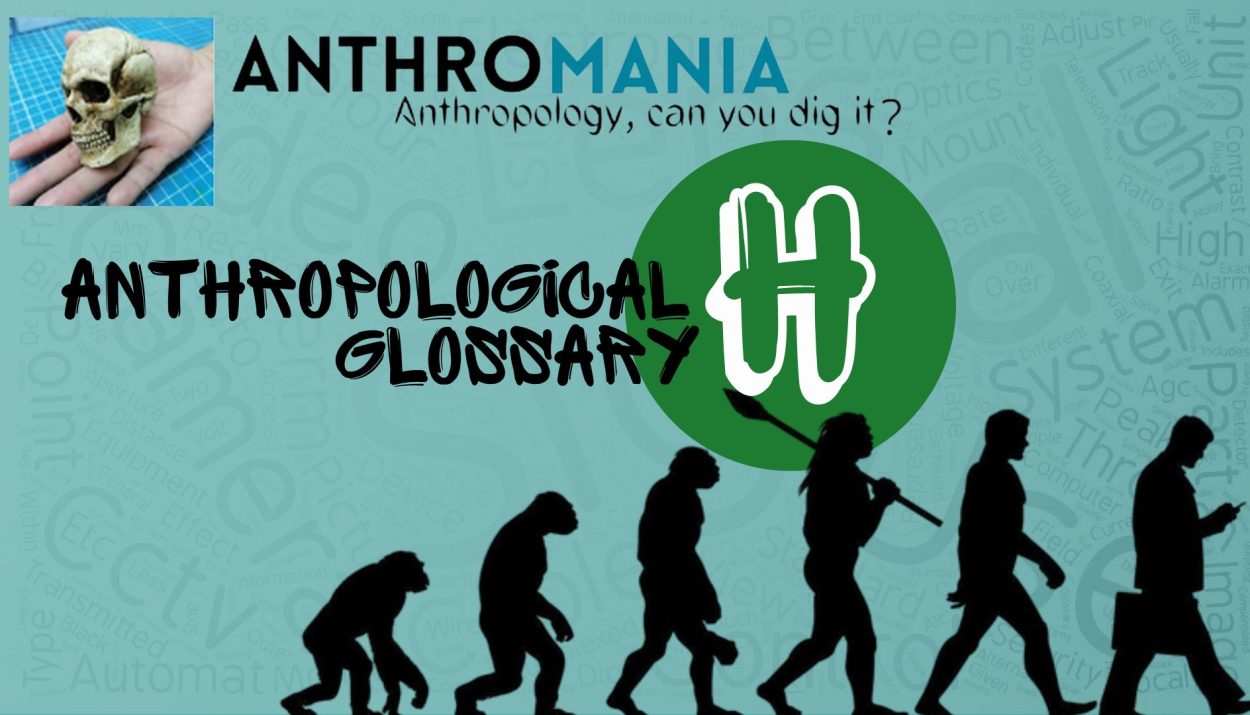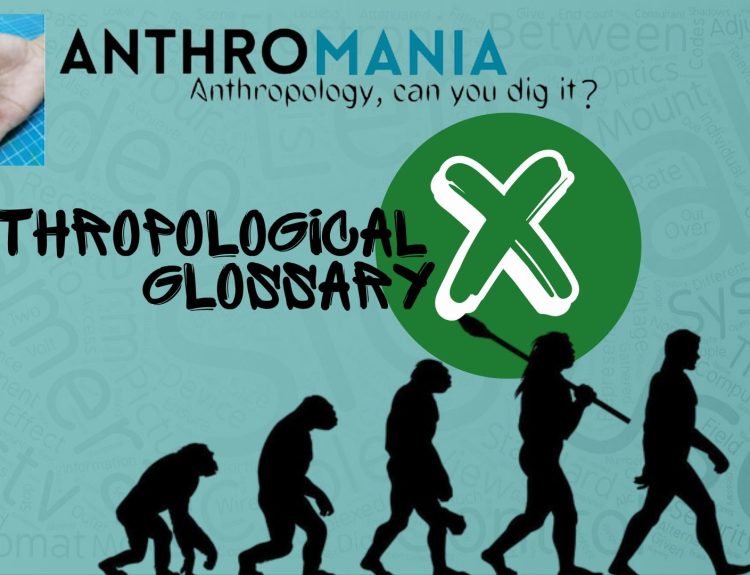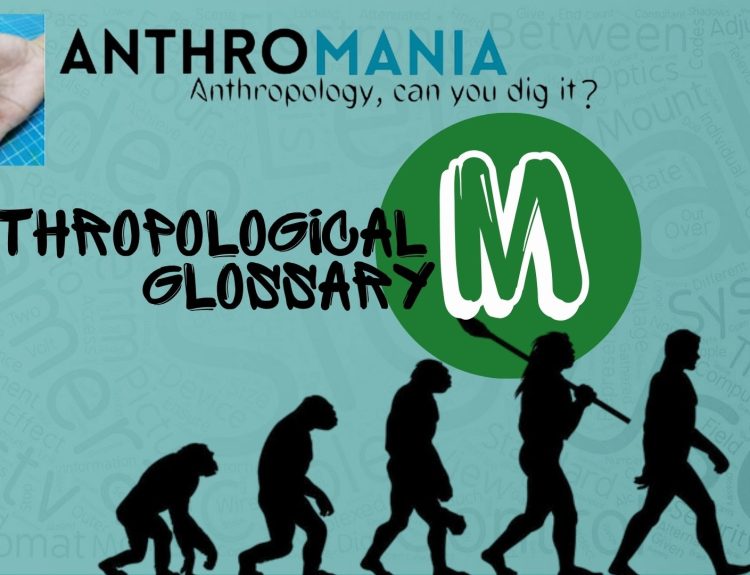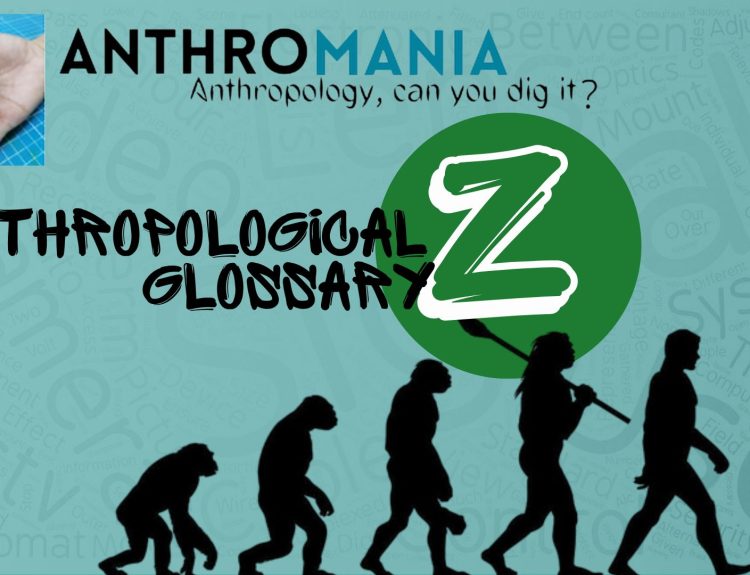Delve into the world of anthropology with our comprehensive glossary of terms starting with the letter H. Explore concepts like habitat, heteronormativity, and human variation. Learn the language of anthropology.
Habitat: In anthropology, habitat refers to the specific environment or location in which a particular group of people or culture resides. It includes the physical, ecological, and cultural surroundings in which a community lives.
Hawaiian system: also known as the generational system. It is the simplest classificatory kinship pattern. In this kinship pattern, one term is used for all males and one term for all females of a generation. It categorizes all relatives based on gender and generation.
Read in detail- Patterns of Kinship Terminology
Headhunting: Headhunting is a practice historically associated with some indigenous societies, involving the collection and display of human heads as trophies. This practice has cultural, ritual, and symbolic significance in the societies that engage in it.
Healthcare Systems: Anthropologists study healthcare systems to understand how different cultures and societies approach issues of health, illness, and healing. This includes traditional healing practices, healthcare beliefs, and access to medical services.
Heritage: Cultural heritage encompasses the traditions, beliefs, customs, and practices passed down from one generation to the next within a specific culture or community. It often includes tangible and intangible aspects, such as historic sites, art, folklore, and language.
Heterogeneous: Heterogeneous refers to the presence of diversity and differences within a particular group, population, or society.
Heteronormativity: Heteronormativity is a cultural and social bias that assumes heterosexuality as the norm and stigmatizes non-heterosexual orientations.
Heterosexual: Individuals who are attracted to people of the opposite gender.
Historical Archaeology: Historical archaeology is a subfield of archaeology that focuses on studying and excavating sites and artefacts from the relatively recent past, often involving written records. It helps reconstruct and understand historical periods.
Historical Linguistics: The scientific study of the transformation of language over time.
Holism: Holism is a fundamental concept in anthropology that emphasizes the interconnectedness of all aspects of a culture or society. It encourages anthropologists to study a culture as a whole, rather than focusing solely on isolated elements.
Holocene Epoch: The Holocene epoch is the current geological epoch, which began around 11,700 years ago at the end of the last Ice Age. It encompasses the time during which human civilizations emerged and developed.
Hominid: Hominids are a biological family that includes humans and their immediate ancestors. This group encompasses all species that are more closely related to humans than to chimpanzees and bonobos.
Hominin: Hominins are a subfamily within the Hominidae family. This subgroup includes humans and their direct ancestors, such as Homo habilis and Homo erectus. Hominins are characterized by bipedal locomotion.
Hominization: Hominization is the process of human evolution and the development of characteristics that distinguish hominins from their primate ancestors. This includes traits such as bipedalism, increased brain size, and tool use.
Homo Erectus: Homo erectus is an extinct species of hominin that lived approximately 2 million to 140,000 years ago. They are known for their advanced tool-making abilities and their role in human evolution.
Homogeneous: A society or population with a high degree of cultural, ethnic, or genetic similarity, lacking significant diversity or variation within its members.
Homosexual: Individuals who are romantically and sexually attracted to people of the same gender.
Horizontal Cultural Transmission: Horizontal cultural transmission refers to the sharing and exchange of cultural practices, beliefs, and knowledge between individuals or groups within the same generation. It often occurs within a community or society.
Horticulture: Horticulture is a type of subsistence agriculture that involves the cultivation of fruits, vegetables, and plants for food production. Unlike agriculture, horticulture typically does not involve the use of ploughs or large-scale land clearing.
Household: A household is a domestic unit in which people live together and share common resources and responsibilities. Anthropologists study households to understand family structures, economic practices, and social dynamics.
Human Ecology: Human ecology is a subfield of anthropology that examines the relationship between humans and their natural environment. It explores how human societies adapt to and impact their ecosystems.
Humankind: Humankind, also known as humanity, refers to the entire human race, encompassing all people from various cultures, societies, and backgrounds.
Human Rights: Human rights are universal rights and freedoms to which all individuals are entitled, regardless of their cultural, social, or national backgrounds.
Human Variation: Human variation refers to the differences in physical and genetic characteristics among individuals and populations.
Hunter-Gatherer: Hunter-gatherer societies are those in which the primary means of subsistence involve hunting wild animals and gathering naturally occurring plants and other resources. These societies are often used as a contrast to agricultural or industrial societies.
Hybridity: In the context of culture and identity, hybridity refers to the blending or mixing of cultural elements, often resulting from cultural contact and exchange.
Hypodescent: Hypodescent, also known as the “one-drop rule,” is a social and cultural practice in some societies in which individuals with any degree of non-dominant racial or ethnic ancestry are classified as members of the non-dominant group.
Hypothesis: In anthropological research, a hypothesis is a testable proposition or educated guess that is formulated to explain a particular phenomenon or set of observations. Hypotheses serve as the basis for research and experimentation.







